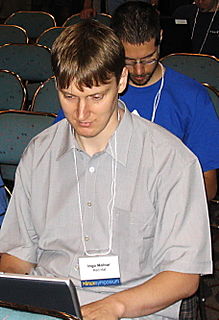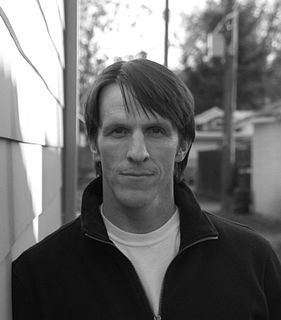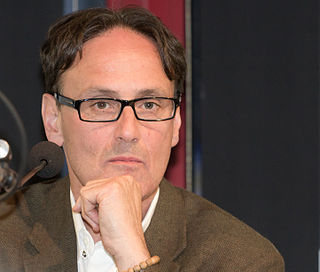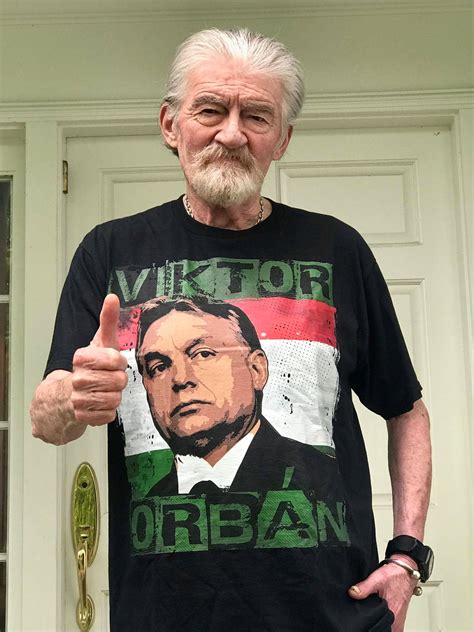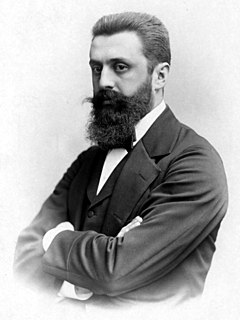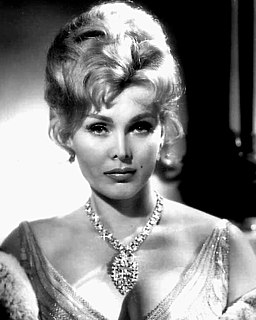A Quote by Ingo Molnar
I have a very simple question to people who seem to suffer from excessive narcissism: please name three other persons who are smarter and more capable than you, in the field you work in. (In most cases they are utterly unable to answer that question honestly.)
Related Quotes
A dialogue is very important. It is a form of communication in which question and answer continue till a question is left without an answer. Thus the question is suspended between the two persons involved in this answer and question. It is like a bud with untouched blossoms . . . If the question is left totally untouched by thought, it then has its own answer because the questioner and answerer, as persons, have disappeared. This is a form of dialogue in which investigation reaches a certain point of intensity and depth, which then has a quality that thought can never reach.
The Work is four questions and a turnaround. The Work is a way to identify and question the thoughts that cause all the suffering and violence in the world. The Work is a very, very simple process. It's for anyone who can answer a question that is willing to. It takes a bit of willingness and an open mind.
Too many escape into complexity these days. For it is an escape for persons to cry, when this question of the equality of peoples is raised in India or in our own South, 'Ah, but the situation is not so simple.' ... no great stride forward is ever made for the individual or for the human race unless the complex situation is reduced to one simple question and its simple answer.
Papers should include more side remarks, open questions, and such. Very often, these are more interesting than the theorems actually proved. Alas, most people are afraid to admit that they don't know the answer to some question, and as a consequence they refrain from mentioning the question, even if it is a very natural one. What a pity! As for myself, I enjoy saying 'I do not know'.
The issue is not whether there are horrible cases where the penalty seems "right". The real question is whether we will ever design a capital system that reaches only the "right" cases, without dragging in the wrong cases, cases of innocence or cases where death is not proportionate punishment. Slowly, even reluctantly, I have realized the answer to that question is no- we will never get it right.
'God' is the name given to the most 'important' human idea. In English, as in other languages, the original sense of the word is obscure. But the character of the name is the same in all languages: it is a question. 'God' is the question 'Is there something more important than, something besides, man?'
For most affairs, this eventually becomes the most fundamental of questions, the only one that matters: Do we love each other more than the lives we already have? It is the question that hovers in the background of every secret phone call, flavors every tryst with the head of possibilities of apocalypse and renewal; and it is the answer to that question, or the lack thereof, that so often dooms an affair to failure.
Obviously we don't have 300 million people. We haven't got a big army. We don't have Hollywood. We're a medium small-sized country. We have to do what medium small-sized countries do, which-even though we're not smarter than other people-is to make ourselves seem to be smarter. We have to work harder and know more than other people.
To be a scientist you have to be willing to live with uncertainty for a long time. Research scientists begin with a question and they take a decade or two to find an answer. Then the answer they get may not even answer the question they thought it would. You have to have a supple enough mind to be open to the possibility that the answer sometimes precedes the question itself.
I once heard a theologian remark that in the Gospels people approached Jesus with a question 183 times whereas he replied with a direct answer only three times. Instead, he responded with a different question, a story, or some other indirection. Evidently Jesus wants us to work out answers on our own, using the principles that he taught and lived.
In the Marquette Lecture volume, I focus on the question in the title. I emphasize the social and political costs of being a Christian in the earliest centuries, and contend that many attempts to answer the question are banal. I don't attempt a full answer myself, but urge that scholars should take the question more seriously.
